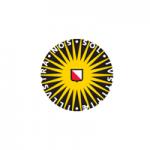项目介绍
Beneath icy moons’ crust, vast liquid oceans may hold the secrets to life beyond Earth. This project will experimentally study how buried oceans reach icy moons’ surface and can be observed.
Job description
In our solar system, most of the oceans are covered by kilometers of ice on moons orbiting Jupiter and Saturn. These oceans, primarily warmed up by tidal forces and/or radiogenic heating and exempt from sunlight, are considered amongst the most promising places to host extraterrestrial life. One of these ocean worlds, Enceladus, a moon of Saturn, sees its ocean escape through cracks in the icy surface via plumes. The Cassini mission has performed many fly-bys through these plumes and measured their composition and characteristics. These measurements showed that the ocean under the icy crust is salty, fed by ongoing hydrothermal activity and contains COMs, i.e. complex organic molecules. These COMs are thought to form via hydrothermal vents, and be transported in the plumes where they have been detected. The conditions in Enceladus’ ocean, however, might be very different from Earth’s oceans and therefore the resulting chemistry might be distinct. While the salinity of these worlds seems earth-like (Kang et al 2022), the carbon content and concentration in CO2 is suggested to be much higher than on earth (Postberg et al. 2023). This high carbon content could be due to the formation of the moons beyond the CO2 snowline (high distance from the Sun) with the core resembling chondritic materials (Sekine et al. 2015). While COMs have been observed in the plumes of Enceladus, providing a direct link to the composition of its sub-surface ocean, it is still unknown whether the organic compounds formed under these conditions are transported to the plumes’ material and can be detected. In addition, the core of Enceladus is thought to be very porous, enhancing liquid-rock interaction that may have supported surface- or gradient-driven chemical exchange reactions. With the future JUICE and Europa Clipper missions searching for organics on the icy moon Europa (possibly hosting plumes) and ESA and NASA strategies (Voyage 2050 and NASA Decadal Survey) to visit icy moons in the coming decades, this project can provide a strategy for the search for (building-block of) life for Enceladus (or Europa).
This project is part of a large consortium from NWA PRELIFE, that will support 16 PhD students. This PhD will be embedded in a team and regular meetings will be organised with the entire consortium. This PhD project will investigate the formation, transport, and detectability of subsurface oceans of icy moons like Enceladus. The candidate will experimentally simulate the journey of COMs from hydrothermal vent environments at the ocean–rock interface, through the icy shell, and into surface-deposited plume material.
The tasks of this project are:
- Build an inventory liquid–rock interactions under varying ocean conditions.
- Experimentally simulate plume formation using Delft Planetary Laboratories (DPL) facilities and plume setup, studying whether ocean-borne COMs are detectable in ejected material.
- Study the stability of organics on icy surfaces by irradiating deposited plume grains, to determine how long biosignatures might survive post-ejection.
- Contribute to predicting detectable biosignatures for future space missions (JUICE, Europa Clipper, Voyage 2050).
Team Embedding:
The PhD will be fully embedded in the DPL team, working closely with experimentalists at TU Delft. The project includes access to unique infrastructure (e.g. PISCES, ICEBEAR chamber), fostering interdisciplinary collaboration between astrobiology, spectroscopy, and space mission instrumentation, as well as close collaboration within the PRELIFE consortium https://www.originscenter.nl/nl/prelife/
References:
Kang et al 2022; https://www.science.org/doi/10.1126/sciadv.aaw7123
Postberg et al. 2023; https://www.nature.com/articles/s41586-023-05987-9
Sekine et al. 2015; https://www.nature.com/articles/ncomms960
Requirements
Applicants are expected to have a university degree (MSc) in physics, astronomy, earth and/or planetary sciences, or a related area, with a strong background in and expertise with experimental techniques (e.g., experience with UHV technology, mass spectrometry, flow dynamics or IR spectroscopy). Applicants must be proficient in spoken and written English.
The successful candidate will be granted a temporary employment contract with the university for a period of 4 years (48 months), with an evaluation at the end of the first year. Within the contract period, the candidate is expected to produce a dissertation (PhD thesis) of sufficient quality for him/her to be awarded a PhD.
TU Delft
Delft University of Technology is built on strong foundations. As creators of the world-famous Dutch waterworks and pioneers in biotech, TU Delft is a top international university combining science, engineering and design. It delivers world class results in education, research and innovation to address challenges in the areas of energy, climate, mobility, health and digital society. For generations, our engineers have proven to be entrepreneurial problem-solvers, both in business and in a social context.
At TU Delft we embrace diversity as one of our core values and we actively engage to be a university where you feel at home and can flourish. We value different perspectives and qualities. We believe this makes our work more innovative, the TU Delft community more vibrant and the world more just. Together, we imagine, invent and create solutions using technology to have a positive impact on a global scale. That is why we invite you to apply. Your application will receive fair consideration.
Challenge. Change. Impact!
Faculty Aerospace Engineering
The Faculty of Aerospace Engineering at Delft University of Technology is one of the world’s most highly ranked (and most comprehensive) research, education and innovation communities devoted entirely to aerospace engineering. More than 200 science staff, around 270 PhD candidates and close to 3000 BSc and MSc students apply aerospace engineering disciplines to address the global societal challenges that threaten us today, climate change without doubt being the most important. Our focal subjects: sustainable aerospace, big data and artificial intelligence, bio-inspired engineering and smart instruments and systems. Working at the faculty means working together. With partners in other faculties, knowledge institutes, governments and industry, both aerospace and non-aerospace. Working in field labs and innovation hubs on our university campus and beyond.
Click here to go to the website of the Faculty of Aerospace Engineering.
Conditions of employment
Doctoral candidates will be offered a 4-year period of employment in principle, but in the form of 2 employment contracts. An initial 1,5 year contract with an official go/no go progress assessment within 15 months. Followed by an additional contract for the remaining 2,5 years assuming everything goes well and performance requirements are met.
Salary and benefits are in accordance with the Collective Labour Agreement for Dutch Universities, increasing from € 2901 per month in the first year to € 3707 in the fourth year. As a PhD candidate you will be enrolled in the TU Delft Graduate School. The TU Delft Graduate School provides an inspiring research environment with an excellent team of supervisors, academic staff and a mentor. The Doctoral Education Programme is aimed at developing your transferable, discipline-related and research skills.
The TU Delft offers a customisable compensation package, discounts on health insurance, and a monthly work costs contribution. Flexible work schedules can be arranged.
Will you need to relocate to the Netherlands for this job? TU Delft is committed to make your move as smooth as possible! The HR unit, Coming to Delft Service, offers information on their website to help you prepare your relocation. In addition, Coming to Delft Service organises events to help you settle in the Netherlands, and expand your (social) network in Delft. A Dual Career Programme is available, to support your accompanying partner with their job search in the Netherlands.
Additional information
If you would like more information about this vacancy or the selection procedure, please contact Stéphanie Cazaux, via S.M.Cazaux@tudelft.nl.
Application procedure
Are you interested in this vacancy? Please apply no later than 10 June 2025 via the application button and upload the following documents:
- CV
- Motivational letter
- A list of courses in your BSc and MSc programmes including marks
- The names and addresses of two references
You can address your application to Stéphanie Cazaux. This PhD is part of a large consortium named PRELIFE. More informations can be found on the following websites: https://www.originscenter.nl/story/prelife-consortium-seeks-the-origin-of-life-on-earth-and-in-the-universe/
Doing a PhD at TU Delft requires English proficiency at a certain level to ensure that the candidate is able to communicate and interact well, participate in English-taught Doctoral Education courses, and write scientific articles and a final thesis. For more details please check the Graduate Schools Admission Requirements.
Please note:
- You can apply online. We will not process applications sent by email and/or post.
- A pre-employment screening can be part of the selection procedure.
- For the final candidates, a knowledge security check will be part of the application procedure. For more information on this check, please consult Chapter 8 of the National Knowledge Security Guidelines. We carry out this check on the basis of legitimate interest.
- Please do not contact us for unsolicited services.
相关项目推荐
KD博士实时收录全球顶尖院校的博士项目,总有一个项目等着你!




